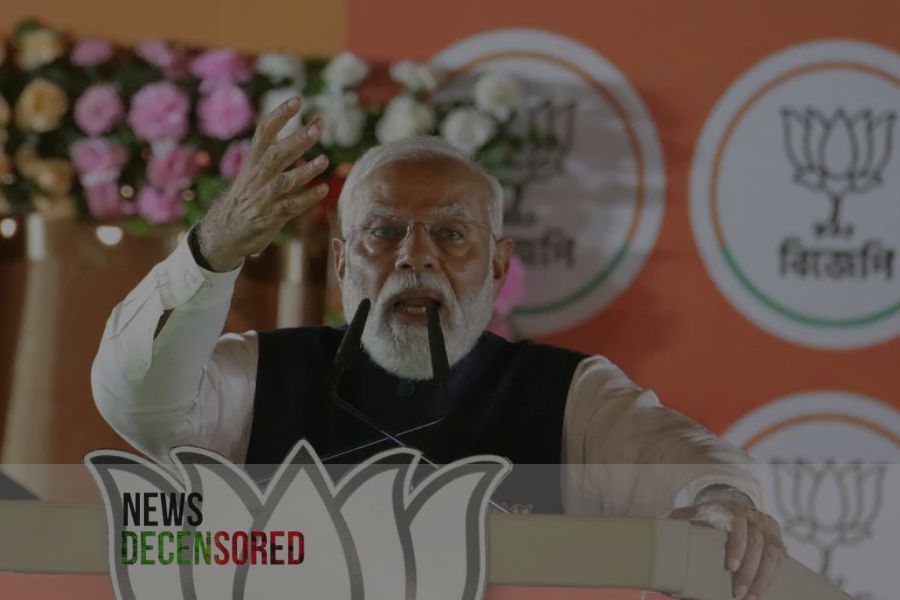Indian Prime Minister Narendra Modi and his Bharatiya Janata Party (BJP) have set the tone for the ongoing national election by positioning themselves as guardians of Hindu interests, framing the contest as a battle to safeguard Hindu values against perceived threats, particularly from the Muslim community.
During a recent rally in Rajasthan, Modi asserted that a victory for the opposition Congress party would result in the redistribution of wealth from Hindus to Muslims, painting Muslims as beneficiaries of this supposed conspiracy. These remarks have sparked widespread criticism and calls for action against Modi for his divisive rhetoric, which has been denounced as hate speech.
Despite facing backlash, Modi has doubled down on his narrative, repeating his accusations against the Congress and warning of potential threats to reservation quotas for marginalized Hindu communities, suggesting that these benefits might be transferred to Muslims under a Congress-led government.
This strategy of exploiting religious divisions is not new for Modi and the BJP. Modi’s political career has been marked by instances of communal polarization, including his controversial handling of the 2002 Gujarat riots, where Muslims were targeted and displaced. Throughout his tenure, Modi has employed coded language and insinuations to stoke fears and hatred between Hindus and Muslims, painting Muslims as outsiders and potential threats to the Hindu majority.
By framing the election as a battle between Hindus and Muslims, Modi and the BJP are openly positioning themselves as the party of Hindus, effectively excluding other religious communities from their voter base. This exclusionary rhetoric has been echoed by other BJP leaders, further solidifying the party’s commitment to Hindu nationalism.
Some analysts attribute the BJP’s reliance on religious polarization to a sense of desperation, particularly in light of lukewarm support in the early stages of the election. Faced with electoral challenges, the BJP has returned to its tried-and-tested formula of Hindu mobilization, capitalizing on fears of a Muslim resurgence in India.
Modi’s rhetoric violates ethical standards and contravenes electoral laws prohibiting campaigning on religious or communal grounds. Despite calls for intervention, the Election Commission of India (ECI) has remained silent, raising concerns about its impartiality and independence.
The BJP’s inflammatory campaign has left India’s Muslim community in a precarious position, with many choosing to remain silent rather than risk further alienation. However, this silence also reflects a broader failure of India’s democratic institutions to address the erosion of secular values and the rise of communal politics.
In conclusion, Modi’s polarizing rhetoric has fundamentally reshaped the narrative of India’s election, deepening divisions along religious lines and undermining the country’s secular fabric. As the campaign continues, the silence of the ECI and other institutions underscores the challenges facing India’s democracy in the face of communal politics.















